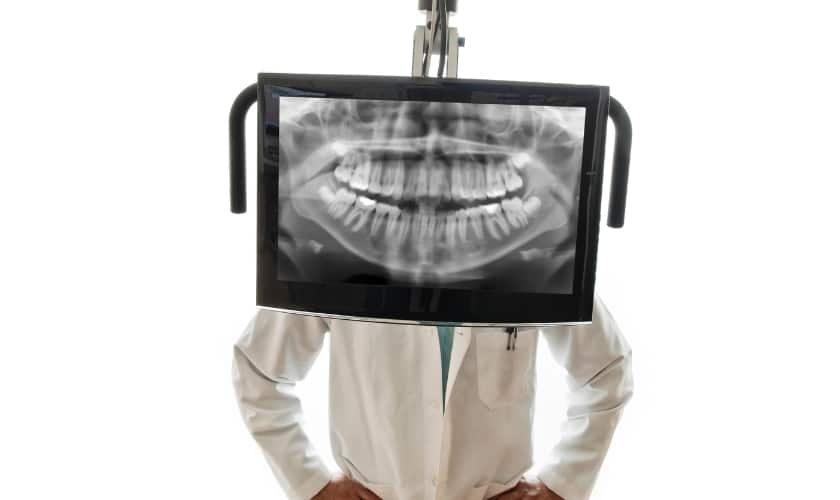How To Preserve Brain Health Through Dental Care
San Antonio, TX

Regarding oral health, most of us focus on preventing cavities, gum disease, and bad breath. However, recent research has shed light on a surprising connection between oral hygiene and brain health. Brushing your teeth regularly isn’t just essential for a sparkling smile; it can also play a crucial role in protecting your brain.
This blog will explore the surprising link between oral and brain health, the science behind it, and why maintaining good oral hygiene is more important than ever. Plus, we’ll discuss how finding a reliable dentist can help you maintain your oral health effectively.
The Oral-Brain Connection
The intriguing connection between oral and brain health may seem unusual, but mounting evidence solidifies this relationship. Multiple studies have uncovered a compelling association between inadequate oral hygiene and the presence of gum disease with an elevated risk of cognitive decline and debilitating neurodegenerative disorders like Alzheimer’s disease.
Inflammation is a pivotal element in understanding this correlation. Gum disease, scientifically known as periodontitis, is an inflammatory condition provoked by bacterial activity in the oral cavity. When this bacterial presence goes untreated, it can infiltrate the bloodstream, prompting a systemic inflammatory response that has the potential to reach the brain. The persistence of chronic inflammation within the brain is a recognized characteristic of neurodegenerative diseases, and it can significantly hasten cognitive deterioration.
Furthermore, certain oral bacteria have been found to release toxins that can damage brain cells, contributing to the onset and progression of neurological conditions. Though researchers are still delving into the precise mechanisms governing this intricate process, the connection between subpar oral health and heightened susceptibility to cognitive impairments is becoming increasingly evident.
Therefore, it is paramount to recognize the profound implications of oral health on overall well-being, including cognitive function. Sustaining good oral hygiene practices, such as regular brushing, flossing, and dental check-ups, emerges as an essential strategy for preserving a radiant smile, nurturing brain health, and safeguarding against neurodegenerative diseases.
The Science Behind It
The intricate relationship between oral health and the broader systemic function of the body hinges on the pivotal role of inflammation. In recent years, chronic inflammation has emerged as a common denominator behind various chronic diseases, including cardiovascular conditions, diabetes, and neurodegenerative disorders. This overarching connection underscores the far-reaching implications of unchecked inflammation in the body.
When an individual grapples with gum disease or other oral health issues, the immune system activates to combat the ensuing infection. This immune response entails the release of inflammatory molecules known as cytokines. While inflammation is inherently intended to be a short-lived defense mechanism against threats, in cases characterized by chronic infections or persistent dental problems, it can become a lingering issue, leading to systemic inflammation.
Systemic inflammation, which extends throughout the body, can harm blood vessels. It heightens the risk of atherosclerosis, a condition in which arteries become constricted and rigid due to the buildup of fatty deposits. This double-edged sword elevates the susceptibility to heart disease and compromises blood flow to the brain, potentially jeopardizing cognitive function.
Moreover, chronic inflammation can activate specialized immune cells within the brain called microglia. When these microglia cells become overactive, they initiate inflammation within the brain itself, fostering the damage of neurons and contributing to the onset and progression of neurodegenerative diseases.
The profound significance of managing oral health transcends a mere focus on dental aesthetics. It encompasses the intricate web of systemic well-being, including the critical role of inflammation. By nurturing good oral hygiene practices and seeking prompt dental care, individuals protect their smiles and mitigate the risk of systemic inflammation, which can help safeguard against a spectrum of chronic diseases, including those affecting the heart and brain.
Maintaining Good Oral Hygiene
Now that we understand the science behind the oral-brain connection, it’s clear that maintaining good oral hygiene is crucial for protecting your brain. Here are some crucial tips for maintaining oral health:
1. Brush and Floss Regularly:
A cornerstone of good oral hygiene, brushing your teeth at least twice daily with fluoride toothpaste and a soft-bristle toothbrush is essential. This practice effectively removes plaque and prevents the accumulation of harmful bacteria that can lead to tooth decay. Daily flossing is imperative to eliminate plaque and debris between your teeth, where brushing alone may not reach, ensuring comprehensive oral cleanliness.
2. Regular Dental Checkups:
Consistently schedule routine dental checkups with a trusted dentist. These periodic visits serve a dual purpose.
- Firstly, they enable your dentist to monitor your oral health vigilantly, promptly identifying emerging issues.
- Secondly, these appointments offer the opportunity for professional cleanings, ensuring the removal of stubborn plaque and calculus, which can prove challenging to manage independently.
3. Healthy Diet:
Adopting a balanced diet with fruits, vegetables, lean proteins, and whole grains is pivotal. Conversely, limiting the consumption of sugary snacks and beverages is equally crucial. High sugar intake significantly contributes to tooth decay, making dietary choices instrumental in preserving oral health.
4. Stay Hydrated:
Maintaining adequate hydration is essential in combating dry mouth, which can elevate the risk of dental problems. Water plays a pivotal role in saliva production, which aids in neutralizing acids, remineralizing teeth, and washing away food particles and bacteria that can cause dental issues.
5. Control Risk Factors:
For individuals managing conditions like diabetes or heart disease, close collaboration with healthcare providers is paramount. Effectively managing these risk factors promotes overall health and reduces inflammation. Controlling systemic inflammation enhances your capacity to ward off chronic diseases and support optimal oral health.
Incorporating these practices into your daily routine fosters a radiant smile and contributes to comprehensive well-being. A proactive approach to oral health is instrumental in preserving your teeth and gums while reducing the risk of systemic inflammation, ultimately bolstering your overall health.
The surprising link between oral and brain health underscores the importance of maintaining good oral hygiene. By brushing and flossing regularly, scheduling dental checkups, adopting a healthy diet, staying hydrated, and controlling risk factors, you can reduce the risk of gum disease and chronic inflammation, thereby protecting your brain.
If you’re looking for a trusted dental professional to help maintain your oral health, consider contacting a dentist in San Antonio. They can provide expert guidance, regular checkups, and tailored advice to ensure that your oral hygiene supports your overall well-being, including the health of your brain. Remember, a healthy smile isn’t just about appearances; it’s about safeguarding your brain and overall health for years.






